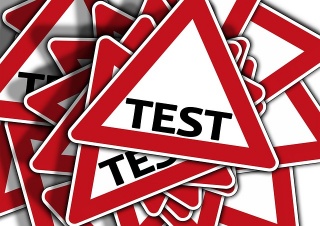The questions which follow provide a basic knowledge test of selected concepts covered in this learning pathway:
Functions of Management.
The questions published at the end of each learning pathway are re-used for the knowledge test for learners interested in earning a digital badge or certificate of participation for the Introduction to Management (PMAN101) micro-course. Please consult the Certify participation page for more information.
Indicate whether the following statements are true or false:
- The performance of managerial roles and the requirements of these roles can be played at different times by the same manager and to different degrees, depending on the level and function of management.
- True
- False
- No.The statement is correct. It is usually the size of an organization that determines the various roles a manager may have to perform.
- The three main categories of management roles are interpersonal, informational and delegational.
- True
- No.While managers delegate, in the context of the PMAN101 materials, this is not a category of management role.
- False
- Correct. While managers delegate, in the context of the PMAN101 materials, this is not a category of management role.
- A line manager's main job is to create an organization's goals, overall strategy and operating policies.
- True
- No.A higher-ranking manager would perform such tasks.
- False
- Correct. A higher-ranking manager would perform such tasks.
- A traditional organizational structure can be represented by an upside-down pyramid.
- True
- No.It is represented by a right side-up pyramid.
- False
- Correct. It is represented by a right side-up pyramid.
Multiple choice questions
- Which ONE of the following is NOT a common type of business manager? (Select one)
- Line manager
- Incorrect. A line manager, who usually has direct managerial responsibility for a particular employee, is common.
- Top manager
- Incorrect. A top manager, who usually is responsible for developing the organization's strategy and being a steward for its vision and mission, is common.
- Religious manager
- That's right. Managers do not usually get involved in managing the personal religious affairs of employees.
- Project manager
- Incorrect. A project manager, who has the responsibility for the planning, execution, and closing of a specific project, is common.
- In the context of the PMAN101 micro-course, which ONE of the following is a well-known proponent of ten key managerial roles that managers and executives usually fulfil? (Select one)
- Carly Fiorina
- Incorrect. Fiorina promotes ethically-based management.
- Henry Mintzberg
- Yes. Henry Mintzberg proposed ten key managerial roles that managers and executives usually fulfil.
- Steve Jobs
- Incorrect. Steve Jobs was the co-founder and former chairman and CEO of Apple.
- Gary Hamel
- Incorrect. Gary Hamel speaks about the future of management.
- Which ONE of the following best describes the managerial function of leading? (Select one)
- Motivating workers to fulfil an organization's mission using social and informal sources of influence
- Yes. Influencing and motivating others are key tasks of a leader.
- Developing an organizational structure and allocating human resources to ensure the accomplishment of business objectives
- Incorrect. This is the managerial function of organizing.
- Setting objectives and determining a course of action for achieving those objectives
- Incorrect. This is the managerial function of planning.
- Ensuring that performance does not deviate from standards
- Incorrect. This is the managerial function of controlling.
- Which ONE of the following is one of the roles of a manager that is considered part of the “informational” function? (Select one)
- spokesperson
- Yes. Other informational roles include monitor and disseminator.
- figurehead
- Incorrect. This is an interpersonal function.
- negotiator
- Incorrect. This is a decisional function.
- leader
- Incorrect. This is an interpersonal function.
